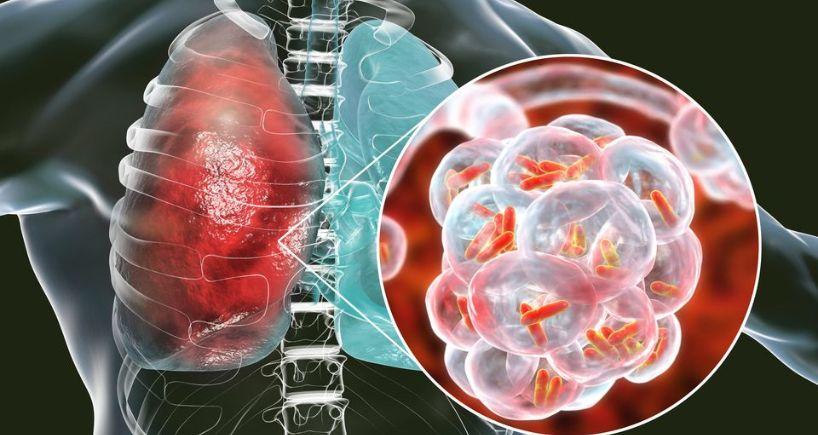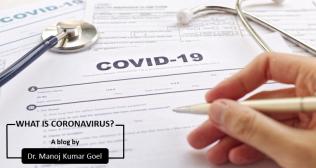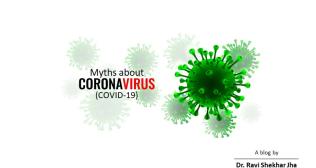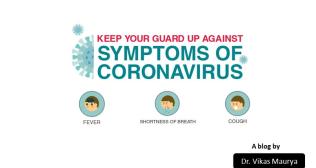
Pneumonia: Causes and Symptoms
Pneumonia is common yet potentially hazardous lung infection affecting millions of people worldwide. It occurs due to inflammation of air sacs filled with fluid or pus, making the infected individual difficult to breathe. This disease can range from mild to life-threatening especially in infants and the ones whose immune system is compromised. Causative agent includes a variety of infectious agents such as – bacteria, virus, fungi, making it a broad and multifaceted disease to comprehend. Pneumonia is one of the leading causes of morbidity in children aged five and older and adults, contributing to public health burden. Understanding the cause and symptoms of Pneumonia is vital for early diagnosis and proper management. This allows individuals and healthcare professionals to provide timely action and thereby prevent serious complications.
Causative Agents of Pneumonia:
Pneumonia is a resultant of a group of microorganisms invading the lungs and causing infection rather than a single pathogen causing single disease. These pathogens include – bacteria, virus, fungi and other pathogens. Differences in organism can cause difference in presentation and severity of disease. In addition, one’s immune health can also determine severity of the disease and presenting symptoms.
- Bacteria: this is one of the most common causative agents, Streptococcus pneumoniae. This can occur on its own or in a person who recently had symptoms of cold or flu.
In addition to Streptococcus pneumoniae, other bacteria that can cause pneumonia include Hemophilus influenzae, Mycoplasma pneumoniae, Legionella pneumophila, causing a specific type of pneumonia called Legionnaires ‘s disease. In hospital cases, the most common bacterial culprit is Staphylococcus aureus.
- Viral: this is yet another leading cause of lung infections. Viruses causing the disease include – influenza virus, respiratory syncytial virus, and corona viruses. In contrast to bacterial pneumonia, viral pneumonia develops more gradually and may initially present with flu-like symptoms, such as fever, dry cough, and fatigue. Progression of viral pneumonia can lead to severe respiratory issues especially in the ones with compromised immune system.
One major difference between viral and bacterial pneumonia is that, viral pneumonia doesn’t respond to antibiotics, making its recovery and management more different and tedious with respect to bacterial pneumonia.
- Fungal: this is one of the less common causes of pneumonia, but can be significant in certain population with compromised immune system. Fungal pneumonia occurs when the fungi in the environment is inhaled, which on entering lungs causes infection. Fungal species that can cause pneumonia include – Histoplasma, Coccidioides, and Cryptococcus.
Fungal pneumonia can also occur in people with underlying health condition or who are on medications which can compromise their immune system. It is of higher risk in those undergoing cancer treatment or organ transplants.
- Aspiration Pneumonia: It occurs when food, drink, saliva or vomitus when inhaled instead of being swallowed into the stomach. This is more common in individuals who has difficulty in swallowing, often due to stroke, chronic alcoholics or in individuals with impaired consciousness. The inhaled foreign bodies can induce bacteria to lungs, causing infection and inflammation.
This type of pneumonia is potentially more dangerous than the above discussed types as the inhaled foreign bodies can damage lung tissue and lead to potentially severe symptoms.
- Hospital and Ventilator Associated Pneumonia: They are common in patients during their hospital stay. HAP occurs in patients whose hospital stay is more than 48 hours and ventilator associated pneumonia occurs in patients who are on mechanical ventilation. This type of pneumonia is more challenging to treat as they are caused mostly by antibiotic-resistant bacteria. People staying in hospital have weakened immune system in addition due to use of catheters and other invasive procedures which may introduce bacteria into the body.
Symptoms of Pneumonia:
Based on the cause, age of individual and their overall health condition, symptoms may vary from one individual to another. Key symptoms of pneumonia include –
- Persistent Cough: this is the hallmark symptom of pneumonia. Depending on the type of pneumonia, the cough may produce phlegm (thick mucus), which can vary between yellow, green in colour or even blood tinged. In viral pneumonia, the person may experience dry cough at start which can progress to cough producing mucus as the disease worsens.
- Fever and Chills: Fever is also most encountered symptom when the body tries to fight off the infection. In bacterial pneumonia, fever can be high upto 105F. Sudden chills is also common in bacterial pneumonia. Viral pneumonia may also cause fever but it is low grade in comparison to bacterial pneumonia.
- Shortness of Breath: Inflammation of air sacs or fluid build-up in the lungs may cause difficulty in breathing. This is most often experienced on physical activity or exertion. Individuals with compromised immune system may face shortness of breath even on rest.
- Chest Pain: Chest pain usually accompanies cough especially while deep breathing. The pain experienced is sharp and stabbing which can be localized or diffuse depending on the lung involvement. Chest pain can be misdiagnosed as a heart pathology especially in older adults if not properly evaluated.
- Fatigue and weakness due to reduced oxygen concentration in blood.
- Confusion: this is yet another common symptom due to reduced oxygen supply by the blood to brain.
- Other symptoms which is present alongside the above symptoms are headache, nausea, vomiting, diarrhea, and muscle pain. They are more common in viral pneumonia but may be present in other types as well.
Conclusion:
Pneumonia is a diverse yet complex respiratory disease caused by a wide range of pathogenic organisms like bacteria, virus, fungi etc. Symptoms can vary from being mild to life-threatening based on individuals’ health status. Early recognition of symptoms is key to effective management of disease.
Popular Searches :
Hospitals: Cancer Hospital in Delhi | Best Heart Hospital in Delhi | Hospital in Amritsar | Hospital in Ludhiana | Hospitals in Mohali | Hospital in Faridabad | Hospitals in Gurgaon | Best Hospital in Jaipur | Hospitals in Greater Noida | Hospitals in Noida | Best Kidney Hospital in Kolkata | Best Hospital in Kolkata | Hospitals in Rajajinagar Bangalore | Hospitals in Richmond Road Bangalore | Hospitals in Nagarbhavi Bangalore | Hospital in Kalyan West | Hospitals in Mulund | Best Hospital in India | | Cardiology Hospital in India | Best Cancer Hospital in India | Best Cardiology Hospital in India | Best Oncology Hospital In India | Best Cancer Hospital in Delhi | Best Liver Transplant Hospital in India
Doctors: Dr. Rana Patir | Dr. Rajesh Benny | Dr. Rahul Bhargava | Dr. Jayant Arora | Dr. Anoop Misra | Dr. Manu Tiwari | Dr. Praveer Agarwal | Dr. Arup Ratan Dutta | Dr. Meenakshi Ahuja | Dr. Anoop Jhurani | Dr. Shivaji Basu | Dr. Subhash Jangid | Dr. Atul Mathur | Dr. Gurinder Bedi | Dr. Monika Wadhawan | Dr. Debasis Datta | Dr. Shrinivas Narayan | Dr. Praveen Gupta | Dr. Nitin Jha | Dr. Raghu Nagaraj | Dr. Ashok Seth | Dr. Sandeep Vaishya | Dr. Atul Mishra | Dr. Z S Meharwal | Dr. Ajay Bhalla | Dr. Atul Kumar Mittal | Dr. Arvind Kumar Khurana | Dr. Narayan Hulse | Dr. Samir Parikh | Dr. Amit Javed | Dr. Narayan Banerjee | Dr. Bimlesh Dhar Pandey | Dr. Arghya Chattopadhyay | Dr. G.R. Vijay Kumar | Dr Ashok Gupta | Dr. Gourdas Choudhuri | Dr. Sushrut Singh | Dr. N.C. Krishnamani | Dr. Atampreet Singh | Dr. Vivek Jawali | Dr. Sanjeev Gulati | Dr. Amite Pankaj Aggarwal | Dr. Ajay Kaul | Dr. Sunita Varma | Dr. Manoj Kumar Goel | Dr. R Muralidharan | Dr. Sushmita Roychowdhury | Dr. T.S. MAHANT | Dr. UDIPTA RAY | Dr. Aparna Jaswal | Dr. Ravul Jindal | Dr. Savyasachi Saxena | Dr. Ajay Kumar Kriplani | Dr. Nitesh Rohatgi | Dr. Anupam Jindal |
Specialties: Heart Lung Transplant | Orthopedic | Cardiology Interventional | Obstetrics & Gynaecology | Onco Radiation | Neurosurgery | Interventional Cardiology | Gastroenterologist in Jaipur | Neuro Physician | Gynecologist in Kolkata | Best Neurologist in India | Liver Transfer



















